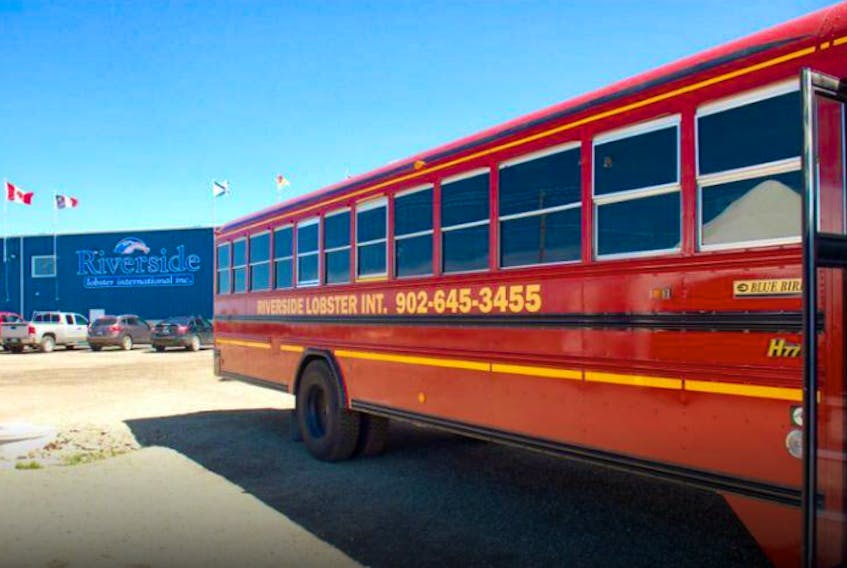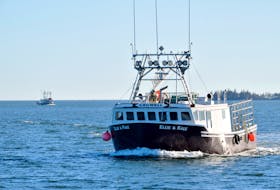METEGHAN RIVER, N.S. — A thriving lobster processing facility in Meteghan River is grappling with red tape to bring permanent immigrant workers to the country.
With close to 300 employees, Riverside Lobster International Inc. is one of the largest employers in the region, but more workers are consistently needed.
Corporate affairs officer Frank Anderson says they are battling an aging demographic, which ties in with a low birthrate and not enough local workers in the province.
“Making immigrants permanent residents under the (government program) Atlantic Immigration Pilot is the right thing to do,” he said.
“It is the future. We’re not having enough kids any more… because all us old folks have stopped doing that,” he laughed.
Under the pilot program, the immigrants hired by Riverside are mostly from Mexico, Chile, Taiwan and Thailand. They must work for the sponsoring business for one year, then have permanent residency and are permitted to work anywhere in the country.

Riverside was approved in May for 10 per cent of their workforce (30 immigrants) through the program.
“If they gave us 20 per cent that would mean an extra 30 people. I’m usually short 35 a day,” said Anderson.
He says a lot of thought and care has gone into making the new arrivals feel welcome and to encourage them to stay.
“We bring them from rural to rural, so they can transition into communities easier/faster and they’re more likely to put their roots down here and stay for 10-15 years.”
For example, Riverside has brought six trailers from Alberta for housing four single people each, in addition to buying houses, duplexes and a motel.
The purchase of land and construction of more houses for immigrant families are planned for the future. The four-in-a-row, semi-detached buildings will each have their own garage.
“After a period of time they can actually buy the house they’re in,” said Anderson.
Riverside has a community committee that helps integrate families into the community – including medical clinics – and their children into schools.
“This region here has embraced our workers. They fit right into the community like gloves. They’re loyal, hard-working and young. That’s the key in this business,” said Anderson.
He adds that as new immigrant families are added, the homes will push towards Digby and Yarmouth and “spread out.” Employees are provided with free bus service to and from work within Digby to Yarmouth.
The company may eventually set up daycares for the families.
“We don’t want to be in the daycare business, the bussing business, the housing business, but do we have a choice?” asked Anderson.
He says the company has stopped expansions because of the worker shortage and there is “lots” of overtime, a situation which is “not good for the employer, or the employee.”
It irks him that seasonal businesses under another immigration program are permitted to
bring in as many workers as they want.
“What’s the good of a six-month program to a company that runs 12 months?” he asked.
He says it’s very frustrating dealing with IRCC (Immigration, Refugees and Citizenship Canada).
“I can’t talk to them on the phone, I can’t fax them, I can’t email them, the only way is to send letters. That just shows you some of the problems.”
On average, the processing time is three to five months.
“The municipal politicians support this business like you wouldn’t believe but they have little authority,” he said.
Anderson has been a guest speaker at four conferences on the issue, most recently at the Atlantic Immigration Summit (May 7) at Pier 21.

More about Riverview Lobster International Inc. jobs (provided by company):
Shift work in a high-tech seafood processing plant. Most of the jobs are in the main processing facility and involve handling lobster parts (tails, claws and bodies) and getting them ready for packaging and shipping. As the facility is highly automated, most of the work is done by machines and the laborers do quality control, etc. Each worker reports to a supervisor and they move the workers around to different tasks, so they are not always doing the same job.









